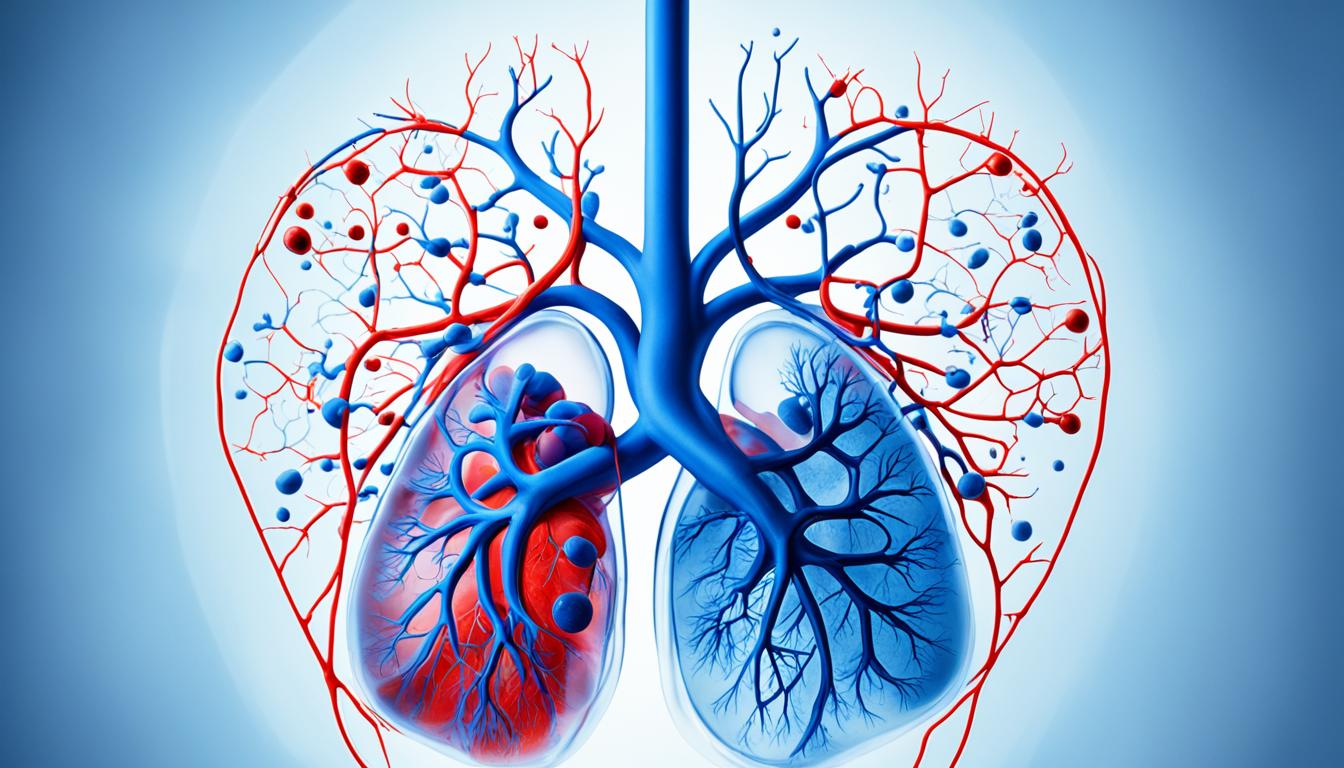Pulmonary hypertension (PH) is a serious condition that causes high blood pressure in the lungs. It leads to failure of the right side of the heart. This issue could arise from different sources including arterial and heart diseases.
It also comes from not enough oxygen reaching the blood, blood clots, and other complex reasons. Sadly, many who have PH do not live past five years even with strong medicines.
But, there is hope in stem cell treatments for PH. These treatments use special types of stem cells which include MSCs and EPCs. Stem cell therapies are being studied in trials right now. They aim to better the lives of PH patients and increase how long they live.
Key Takeaways:
- Pulmonary hypertension (PH) is a progressive disease with high mortality rates despite conventional drug therapies.
- PH can be caused by various factors, including arterial disease, left heart disease, chronic hypoxia, chronic thromboembolic events, and multifactorial mechanisms.
- Stem cell therapies, including MSCs, EPCs, and iPSCs, have shown therapeutic potential for PH.
- Clinical trials on stem cell therapies for PH are underway, offering hope for improved outcomes and prolonged survival for patients.
- Further research and development are needed to fully understand and optimize stem cell therapies for PH treatment.
Stem Cell Therapy for Pulmonary Hypertension
Research shows that stem cell treatments could help with pulmonary hypertension (PH). They’ve looked at many types of stem cells, like EPCs, MSCs, and iPSCs. These cells could be key in treating PH.
Correcting EPC Deficiencies
EPC infusion could fix EPC shortages and the issue of bad repair in PH. By adding more EPCs, the goal is to fix how blood vessels work and help them heal better.
Anti-inflammatory and Immunomodulatory Effects of MSCs
MSCs fight swelling and help the immune system, which can stop vessels from changing in PH. They work to calm down the immune system, reduce swelling, and help heal. This could really help PH patients.
Modeling PH with iPSCs
iPSCs, made from regular cells, are a special tool to study PH. By making these from PH patients, scientists learn a lot about the disease. This method helps in making new treatments for PH.
Studies on stem cell treatments for PH are important for finding new ways to treat it. Stem cell therapy gives hope for better health and a better life for people with pulmonary hypertension.
Conclusion
In conclusion, pulmonary hypertension is a severe and complex illness. It demands effective treatment. Stem cell therapy, with EPCs, MSCs, and iPSCs, looks very promising. It aims to better the course of pulmonary hypertension.
These stem cells help by cutting down on inflammation. They also sort out faulty repair work and encourage healthier lung blood vessels. Clinical trials are still ongoing. They test how safe and well stem cell treatments work for pulmonary hypertension.
This continuing research brings hope for new, effective patient care. It could largely better both diagnosis and patient life quality. By sticking to guidelines and exploring stem cell therapy further, health experts strive for key insights. Continuous work and sharing within the medical world promise advanced treatments. These are vital in fighting pulmonary hypertension and lessening its effect on those it afflicts.

